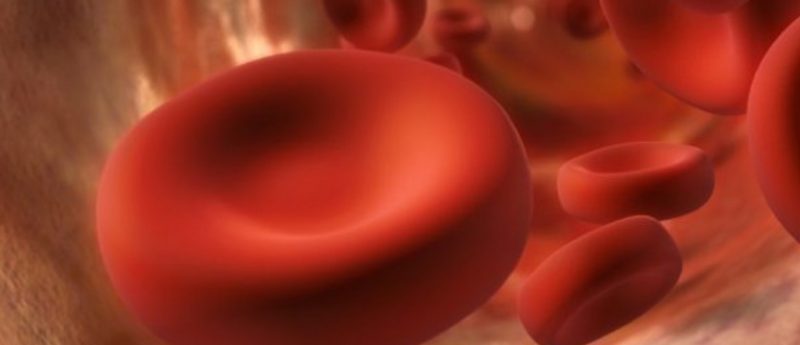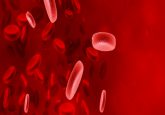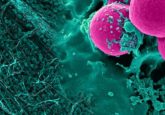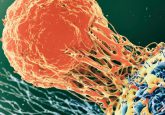NO blockers show promise for acute myeloid leukemia

Researchers at the Francis Crick Institute, King’s College London and Barts Cancer Institute (all London, UK) have demonstrated that drugs that prevent bone marrow leakage improve the delivery of chemotherapy in acute myeloid leukemia (AML) patients. This could provide a novel combination therapy against the most common acute leukemia affecting adults.
Recently published in Cancer Cell, the study was led by Dominique Bonnet (Francis Crick Institute) and investigated why chemotherapy in AML patients was not being delivered efficiently. Diana Passaro (Francis Crick Institute) commented: “We found that the cancer was damaging the walls of blood vessels responsible for delivering oxygen, nutrients, and chemotherapy. When we used drugs to stop the leaks in mice, we were able to kill the cancer using conventional chemotherapy.”
First, bone marrow taken from AML patients was injected into mice and compared with healthy mice utilizing intravital microscopy and fluorescent dyes. They observed that the dyes leaked out of bone marrow blood vessels in AML mice, but not in healthy mice. This is because blood vessels in AML mice are oxygen-starved, increasing the production of nitric oxide (NO), a muscle relaxant, allowing blood to escape.
Second, the team aimed to restore bone marrow blood vessels in AML mice by the introduction of NO synthase blockers in combination with chemotherapy. This resulted in slower leukemia progression and longer remission periods in comparison with chemotherapy alone.
“When the vessels are leaky, bone marrow blood flow becomes irregular and leukemia cells can easily find places to hide and escape chemotherapy drugs,” stated Diana. “Leaky vessels also prevent oxygen reaching parts of the bone marrow, which contributes to more NO production and leakiness.
“By restoring normal blood flow with NO blockers, we ensure that chemotherapy actually reaches the leukemia cells, so that therapy works properly.
“We’ve uncovered a biological marker for this type of leukemia as well as a possible drug target. The next step will be clinical trials to see if NO blockers can help AML patients as much as our pre-clinical experiments suggest,” concluded Dominique.
Sources: Passaro D, Di Tullio A, Abarrategi A et al. Increased vascular permeability in the bone marrow microenvironment contributes to disease progression and drug response in acute myeloid leukemia. Cancer Cell doi:10.1016/j.ccell.2017.08.001 (2017) (In press, corrected proof); Francis Crick press release: https://www.crick.ac.uk/news/science-news/2017/08/31/chemo-boosting-drug-discovered-for-leukemia/





